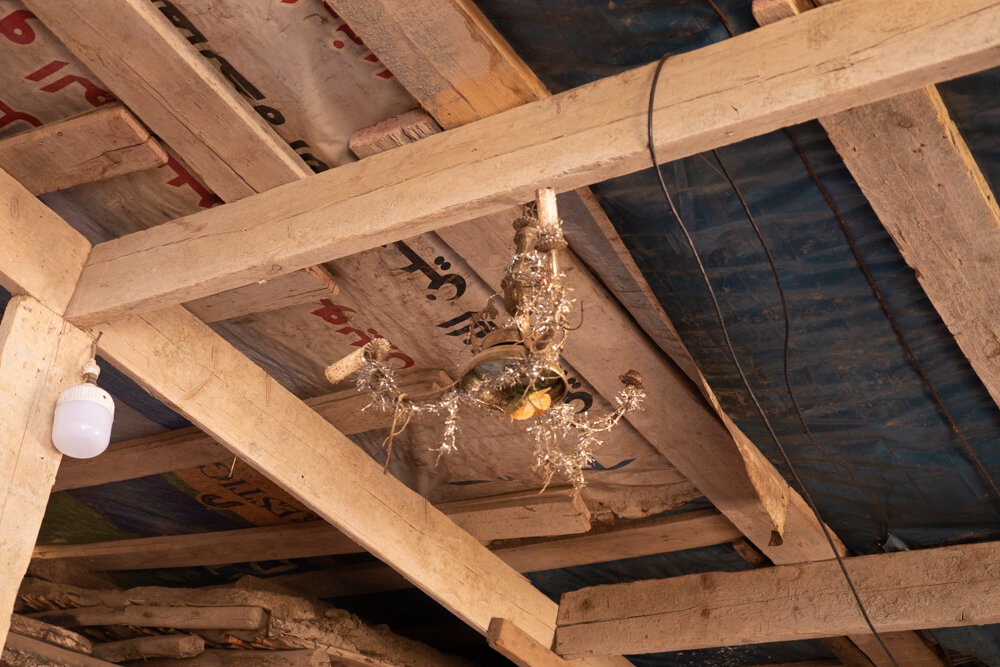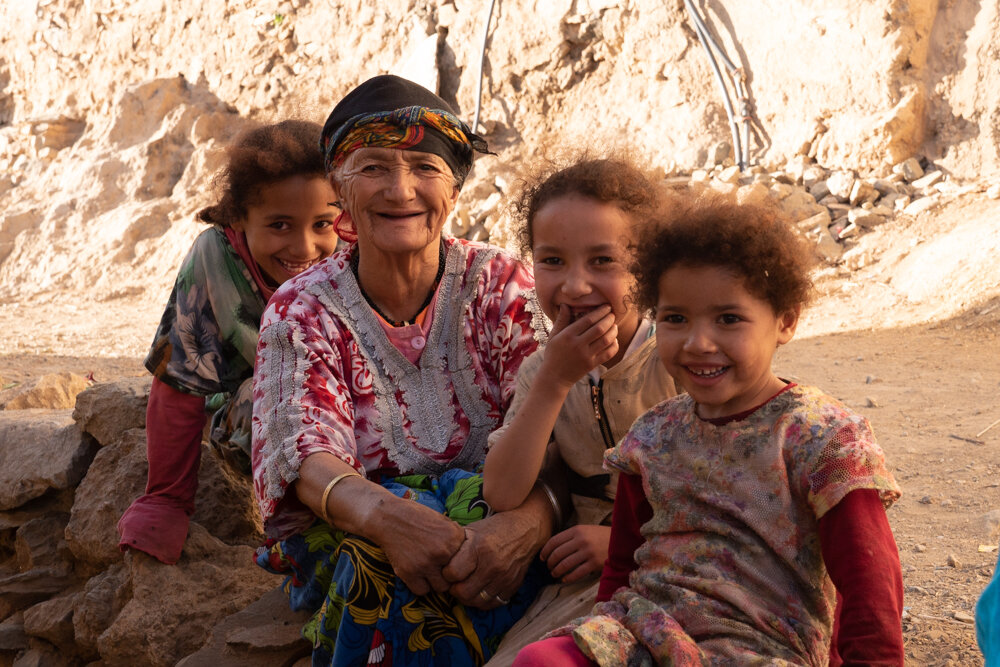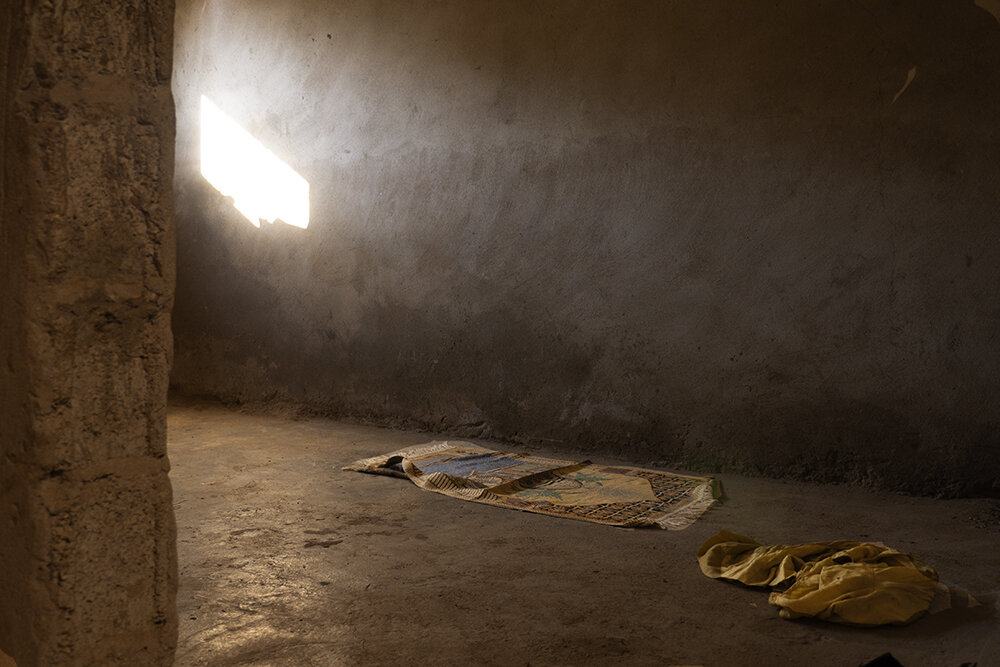I’ve always had some qualms about documentary. Filmmakers are usually privileged compared to the people they’re filming, which means the whole relationship is skewed from the get-go. You get in, you need to quickly create rapport with people, then you’ll get your film, your money, your awards, and whatnot, and what’s in it for them?
Rapport can’t be built on money, otherwise it’s prostitution, but some money has to change hands, and it’s a tricky equation. Luckily, none of that is my business, I’m only a camerawoman, and as a freelancer, I have my own survival in mind. Still. Can’t help to feel like a fucking tourist. And I don’t like feeling like a tourist.
Also, real people lie. Ugly little human lies. Fiction is a different animal, in which lies lead to a deeper emotional truth. (Fiction is my first love. The one you never forget)
But documentaries can be quite transformative for the filmmakers, and this one was no exception.
“We don’t make movies to make more money,
we make money to make more movies.”
Walt Disney
Our main character is a grocery store owner who works and lives in the capital.
He has no training in cinema, but all year long, in his grind, he works on writing a script in Amazigh, and during the holidays, back to his region in the mountain, he shoots it with local youth (his friends).
On his own savings.
This whole going back and forth (the city where he lives alone, speaks Arabic, is looked down upon and saves every penny/the mountain where he is looked up to, speaks Amazigh, lives in community, spend his hard-earned money on his films) makes me feel he’s like an immigrant.
In his own country.
It’s primitive filmmaking, no coverage, most of the scenes taken in one shot, and maybe it won’t be the best movie in the world, but seeing the seriousness with which actors (real-life farmers) studiously read their lines, and the involvement of the whole village is quite heartwarming.
All the emotions involved in shooting fiction are there, only more raw, and it’s beautiful to see my first love’s infancy, from a distance.
The actresses come from the city, and it seems it was a big deal to find them.
Until the lion learns how to write, every story will glorify the hunter
African saying
During a music festival we are filming, organisers come to me to hint
I shouldn’t film (their) women.
Women themselves refuse to be filmed in their daily activities, which is a downer. (“Degrading, disgraceful”)
I’m not a big fan of making women invisible, but I am a big fan of consent, so I take what I can get: shots of their hands when they’re baking bread, getting wood, making fire, cooking, doing the dishes, washing clothes in the river… I figure if we can get their audio testimonies and edit the two …
The producer comes. She tells the women she’s ill at ease with showing only their hands, because that’s what we do with war criminals. Are they criminals?
She says she sees honest women, trying to make a living, who don’t have anything to be ashamed of. She asks who is seen on TV? Important people, that’s who! She points out if they refuse to represent themselves and tell their stories, then they risk being misrepresented, and their stories ignored. She says she can’t promise our filming them will magically change their reality, because she’d be lying, but she quotes the Koran, and explains that God himself, in all his might, cannot help those who refuse to help themselves. Women start to change their mind.
We’ll end up interviewing only the actresses, but it was quite an interesting conversation to witness.
I find the whole interdiction to film women quite depressing. As if their body and image belonged to men. What a God’s forgotten backward country, I’m thinking, but then on Zaynab’s TV, a male voice give grades to American female stars on their outfits that week (beware of the “fashion faux-pas”) and a blonde star I never heard off talks about “revenge-porn”. In the land of the free, women’s appearances and sexuality are held against them too.
It takes different forms and different flavors, some undeniably worse than other, but just like climate change, patriarchy is a global problem.
Phenomenally woman
Maya Angelou
I met Zaynab at the river. We hit it off immediately. She let me film her hands while she was doing the laundry and taught me how to say “hands” (ifassen) and “face” (oudem) in Amazigh.
She then went on, telling me how to name my intimate lady parts (breasts, ass, pussy, the holy trinity of femininity). As other women came to the river, she invited me to share my learnings. As expected, it cracked them up. Jokingly, she suggested I’d repeat those words to the men when they all gather at lunch and look at their faces.
Picturing their shock and awe made me howl with laughter. It may seem childish, vulgar, ludicrous. But what’s she was really saying runs way deeper. She was hinting that (my) sexuality is an access to a raw, untamed, uncontrollable life-force (most) men are afaid of, but I should own it. Own it, woman. Own it.
“Prayer is a path where there is none”
Noah Benshea
Mi Rqia is curing little Layla by passing an egg over her feverish body, repeating a prayer. The egg, laden with disease, is then broken, filled with flour, and then thrown into the river. And rock salt is then rubbed onto the child’s hands and feet.
I’m ideally placed to film, but I refrain from it. If anything were to happen to the child, God forbid, I would be deemed responsible. We have not built enough trust, yet. The next day little Layla is feeling great. I mention the ritual to the producer when she comes and we plan to film it, but this time, fake it, asking one of the actresses to pretend to be sick. To no avail. Whenever we look for her, Mi Rqia is gone. I’m not super at ease with filming magical rituals (part of me is concerned it might diminish or kill their power, and backfire if someone lies about being sick) so secretly, I’m relieved.
I meet Mi Rqia later on. She’s back from that moutain over there where she has been called at the bedside of her friend. She seems jadded like only health care providers can be when they’re called on too late. Her friend is in hospital with Covid and diabetes, she tells me, she did her thing as they asked her to, but seems to wonder what people expect, really.
No future in paradise
The mountain is a paradise for children. They pick fruits from the trees, drink water from the spring, sing songs, throw rocks, know how to make fire-Real life skills.
I’m impressed with these children, their smarts, freedom and ruthless joy. Plenty of them, too.
Women have at least 4 children. Their mothers had at least 8, and the consciousness about overpopulation is growing. The soil and water inherited from the ancestors don’t yield enough to feed everybody, and in the moutains it’s obvious that arable lands can’t be extended, but then you need arms to exploit them.
It’s a complex world.
The local school ends up after primary school, the road is quite bad, transport is expensive, so studying after primay school is not a given, especially for girls.
Teenage girls dream of marrying a man from the city, to escape the harassing women’s duties and benefit from all the comodities, and the freedom of the big city. I understand them, and yet I haven’t felt that sense of community, that level of human warmth in a very long time.
No jobs for men in the village. They go to the nearest city and try and get any low end job they can find, (waiter, driver) to get by and help their family. Very attached to their land, they try to stay close and to come back often. Their dream wife is one from the mountain, because they’re stronger, more capable, less demanding than city girls. Renting a house and raising a family in the city is way too expensive for the wages they can get, so they plan on leaving their wives in the village, and coming to visit when they can. And that’s the way things are already. The women, alone with the children, very isolated during the winter, when snow makes the road impassable. All reinforcing their daughters’ dream of the man from the big city who would come and rescue them.
In a death car, we’re alive
There are maybe 15 men standing in the back of the truck. No asphalt road. A trail in the mountain. They must lower their heads whenever we meet trees. Any mistake could be deadly, but it seems as though the truck (and its shipment) are protected. The producer and I (the two only women) are sitting. I film what I can. Surprisingly, I feel no fear. Life has always been a struggle for these men, but on that trail, all the way, they are singing. Finding back pride, to be men, in the wild. And it’s beautiful to feel included.
Heisenberg
I asked the producer (also a director) what’s in it for her? Why all that effort? On her next project, she’ll be giving 3 years of her life (minimum) to show rural women working conditions. And her film arguably won’t change those conditions. We can film social injustice until we’re blue in the face, does it have any effect? Who listens anyways?
I don’t believe much in information to affect change, (people know) more that change can only start from within, from a deep, honest-and yes, painful-exploration of our own shadows. I believe in poetry.
The producer smiles. Getting intimate with people she would have no business with if it wasn’t for her films gives her the feeling of creating alternate families and getting to live more than one life. A better and deeper understanding of the human condition. More compassion.
She adds most of the characters in her features have seen their life (or their perspective on their life) drastically evolve after being filmed. For the better. Because the time you take with people, the attention you give them, showing them their stories have value, boosts their self-esteem;The very presence of an observer affects the observed reality. Light bulb moment. There is more than one way…





